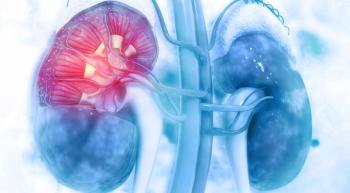
- June 2012
- Volume 6
- Issue 4
Importance of Adequate Nutrition Emphasized
Although the role of adequate nutrition in cancer patients is gaining recognition as being important, the area is often neglected as a key component of nursing care.
Although the role of adequate nutrition in cancer patients is gaining recognition as being important, the area is often neglected as a key component of nursing care, according to a speaker at the ONS 37th Annual Congress.
Since about 50% of cancer patients have nutritional issues at diagnosis, and treatment can exacerbate weight loss and deteriorate nutritional status, it is vital for oncology nurses to ensure that malnutrition is diagnosed and treated, said Meghan Routt, MSN, RN, James Cancer Hospital, The Ohio State University Medical Center, Columbus. The issue should be given attention across the cancer care continuum, she said, since oncology patients can encounter nutritional challenges at any time from diagnosis through curative treatment or palliative care.
In helping such patients, Routt added, nurses should be aware of several studies demonstrating that individualized nutrition counseling by a registered dietitian can help reverse weight loss/malnutrition and improve overall health and social functioning, functional status, and quality of life.
“Every patient who walks through the door should be screened for malnutrition,” she advised. “Patients should be followed closely to be sure they are paying attention to nutrition. The patient is a partner in the process.”
Nutritional complications from chemotherapy, surgery, radiotherapy, and immunotherapy are frequent, can be expensive to treat, and can limit therapy, Routt said. In particular, she said, malnutrition can impair wound healing and increase morbidity, mortality, muscle loss, the rate of infection and other complications, the likelihood of hospital admission, and the length of hospital stays.
Among the side effects of cancer or its treatment that can affect nutritional status is cachexia (ie, ongoing loss of skeletal muscle mass), which cannot be fully reversed through conventional nutritional support. The diagnosis of cachexia should be suspected, Routt said, if a patient experiences weight loss in excess of 5% over 6 months or the body mass index (BMI) falls below 20 and the patient experiences more than a 2% weight loss over the same time period.
Other common side effects—often related to treatment— that affect nutritional status include nausea, vomiting, anorexia, mucositis, esophagitis, fatigue, and diarrhea or constipation. About 50% of patients experience some degree of nausea and vomiting, Routt said, and this commonly affects nutritional intake.
In a study of 191 cancer patients treated with chemotherapy, 49% were malnourished, 46% required symptom management and/or nutritional intervention, and 89% had five or more nutrition-related symptoms [Nutrition and Cancer. 2010;62:220-228]. Surgery for cancer also is associated with nutritional problems. Malnourished surgical patients are at increased risk for postoperative morbidity and mortality, so weight loss should be taken seriously, Routt noted.
Cancers that affect the digestive tract pose specific nutritional risks, she said. Surgery for head and neck cancer can create problems affecting the ability to speak, chew, salivate, swallow, smell, and taste. Enteral feeding tubes may be necessary. Treatments for gastrointestinal cancer can result in gastroparesis, alterations in digestion, malabsorption of nutrients, and a host of related digestive-tract abnormalities.
Side effects of radiation can affect ingestion, digestion, and absorption of nutrients, Routt added. Diarrhea, nausea, vomiting, enteritis, and malabsorption are common gastrointestinal side effects of radiation. Side effects of immunotherapy can also compromise nutritional status.
“Nutrition is an aspect of care where early recognition [of malnourishment] and intervention are vital,” Routt said. “This may be the only area of care where a patient can have a sense of control over his/her life. Instead of making nutrition a source of tension and anxiety, the cancer nurse can try to address patients’ needs by encouraging them to become involved in maintaining adequate nutritional status early in the treatment process, so that they become proactive about their nutritional needs.”
Articles in this issue
over 13 years ago
A Patient Is His Own Best Advocateover 13 years ago
Oncology Nurse Staffing Is Variable and Multifactorialover 13 years ago
Hereditary Colon Cancer: Which Patients Are at High Risk?over 13 years ago
Considerations in Interpreting Diagnostic Test Resultsover 13 years ago
Interventional Radiology: A New Frontier in Cancer Careover 13 years ago
Distress and the Nurse Navigator, Part INewsletter
Knowledge is power. Don’t miss the most recent breakthroughs in cancer care.

































